I’ve read a lot of books in the last couple of years. These books helped me clarify and contextualize my thinking about “eschatology,” the study of things to come and the end times. I believe that each of these would be valuable to you, for varying reasons. I’ve included the Amazon blurb for each, as well as a link to the Amazon listing for the book.
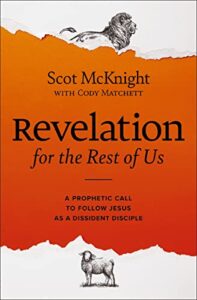
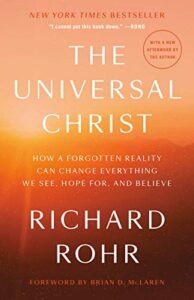
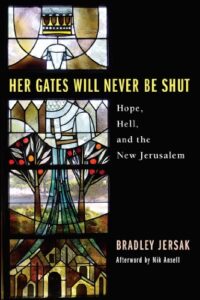
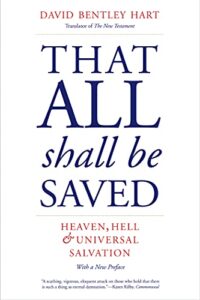
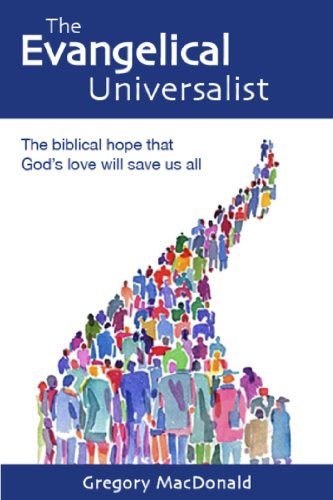
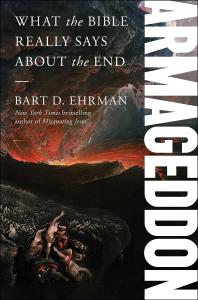
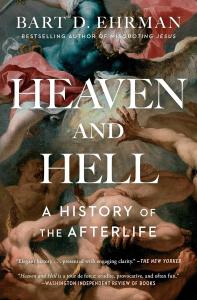
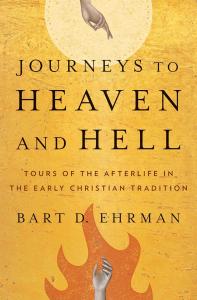
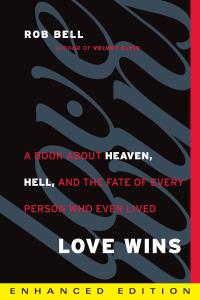
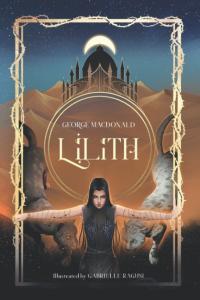
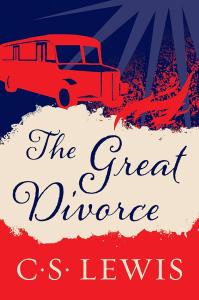
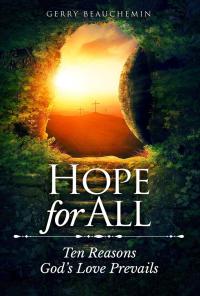
Reviews
“Revelation for the Rest of Us: A Prophetic Call to Follow Jesus as a Dissident Disciple” by Scot McKnight


This was an interesting book, but after about halfway through, I kind of got tired of it and skimmed the third quarter or so. It felt a bit pedantic at that point – reiterating the same ideas too many times. Perhaps this was because I’ve studied this topic for so long, and had heard most of his arguments in one form or another for quite a long time.
Also, while I appreciate his emphasis on the writing style and how that should shape our interpretation, I think most people who take his position make the same logical error. They assume that because it’s a largely symbolic book, one cannot ALSO find that it has a predictive value. I’ve been taught for years that prophecy in the Bible operates at multiple levels, where a given prophecy can have more than one fulfillment, each one closer to the ultimate perfect reality. We see this principle operating in prophecies in the Old Testament that refer to things the authors were describing about their own era, but later were recognized as describing Jesus. And there are likely ways they will be fulfilled in the future, too. So I think it’s a mistake to insist that one must only read Revelation as not having any specific future fulfillment.
With that said, I think McKnight does offer some excellent insights into the characters in Revelation, especially the overall concept of Babylon, and he’s right that we need to be incredibly alert to how we might fall into the trap of living in and worshiping Babylon today. (But we can still simultaneously have future specific fulfillments, and we shouldn’t miss that aspect of the prophecy.)”
(Reviewed April 2023)
Amazon description: The biblical Book of Revelation frustrates and fascinates many people with its imagery and apocalyptic tone. Most popular interpretations of the book rely on a perspective known as dispensationalism, popularized by the Scofield Bible and more recently the Left Behind series of novels. Yet there are many problems with this popular way of reading Revelation, and until now, few alternatives have been available that were easy to understand.
In Revelation for the Rest of Us, Scot McKnight with Cody Matchett explore the timeless message of Revelation and how it speaks to us today with a courageous challenge to be faithful witnesses to Jesus while standing against the ever-present reality of worldly authorities. The writer, John, stimulates the imagination to see the world differently, through the eyes of God, presenting a "divine politic" that subverts the anti-god patterns of governments, empires, and those in power.
McKnight addresses the popular misconceptions about the book, explaining what John means in his use of the images of dragons, lambs, and beasts, and how the symbolism of Revelation speaks powerfully to the present day–though not in the way most people think. Drawing from the latest scholarship, they present an understanding of Revelation for anyone interested in deepening their personal study of the Bible as well as preachers looking to communicate this timeless message today.
McKnight offers in this book a discipleship manual for discerning the immoralities of political powers and how the church can be both an agent of resistance and transformation.
John designed his Book of Revelation to disciple readers into dissidents of the ways of the world and empire. John describes that empire with the term "Babylon." Babylon is a timeless image of empire, militarism, economic exploitation, injustice, and oppression. The Book of Revelation disciples Christians through worship and the courageous challenge of faithful, or allegiant, witness to the slaughtered-Lamb. John’s dissident disciples can discern the presence of "Babylon" in our world and learn to speak up, speak out, and walk in the way of the Lamb. He disciples us by stimulating our imaginations to see the world and "Babylon" through the eyes of God, and in so doing John presents a "divine politic," a view of government and power that subverts the anti-god patterns of "Babylon" today.
“The Universal Christ: How a Forgotten Reality Can Change Everything We See, Hope For, and Believe” by Richard Rohr


I really have mixed feelings about this book. There are lots of good insights about the Scriptures about Christ and salvation, and Rohr makes it apparent how the evangelical church has taken some convenient liberties with the Bible regarding salvation, how a transactional gospel has taken hold of that wing of Christianity. I also appreciate how he identifies the risks of a dualistic view of the Kingdom, compared to the mystery that it really ought to be.
What bothers me about his overall approach, I suppose, is that it seems to minimize a number of passages in the Bible that do call for some suitable dualism. And there is a potentially dangerous blurring of the boundaries between religions, and I am not convinced that his insistence in the universality of Christ can dispense with the fairly straightforward language about the cross, not just Christ, as the essence of our salvation. To some extent I feel like he makes a case for a viewpoint without addressing its likely counterpoints. I’m too much of a scientist to ignore the "test your hypothesis against contrary data" method of analysis.
But with that said, I think it’s an interesting book for the challenges it presents to a black-and-white view of doctrine and salvation that is typical to the evangelical church. If nothing else, it will open your eyes to a variety of ways of understanding Christ.
(Reviewed October 2022)
Amazon description: In his decades as a globally recognized teacher, Richard Rohr has helped millions realize what is at stake in matters of faith and spirituality. Yet Rohr has never written on the most perennially talked about topic in Christianity: Jesus. Most know who Jesus was, but who was Christ? Is the word simply Jesus’s last name? Too often, Rohr writes, our understandings have been limited by culture, religious debate, and the human tendency to put ourselves at the center.
Drawing on scripture, history, and spiritual practice, Rohr articulates a transformative view of Jesus Christ as a portrait of God’s constant, unfolding work in the world. "God loves things by becoming them," he writes, and Jesus’s life was meant to declare that humanity has never been separate from God—except by its own negative choice. When we recover this fundamental truth, faith becomes less about proving Jesus was God, and more about learning to recognize the Creator’s presence all around us, and in everyone we meet.
Thought-provoking, practical, and full of deep hope and vision, The Universal Christ is a landmark book from one of our most beloved spiritual writers, and an invitation to contemplate how God liberates and loves all that is.
“Her Gates Will Never Be Shut: Hope, Hell, and the New Jerusalem” by Bradley Jersak


I really enjoyed this book, much more than "All That Shall Be Saved." It was much more approachable, less excessively erudite, but just as solid a presentation about the topic of universalism and hell. It basically put the final nail in the coffin of eternal damnation for me: although "All That Shall Be Saved" was perhaps more scathing in its treatment of opposing views, this book was essentially the opposite, a gentle appeal based on reasonable discussion, and gave me the discussion tools I will need to talk about this with an open hand instead of demanding that others agree.
Basically, it’s a book based on hope and love.
I really loved this quote in his addendum: "If your only reason for becoming a Christian is to avoid hell, I wonder if you have ever encountered the love of our precious Savior. Have you met him?" That perfectly wraps up my feeling about this whole topic: love is so much stronger than fear, and mercy is stronger than judgement.
(Reviewed September 2022)
Amazon description: Everlasting hell and divine judgment, a lake of fire and brimstone–these mainstays of evangelical tradition have come under fire once again in recent decades. Would the God of love revealed by Jesus really consign the vast majority of humankind to a destiny of eternal, conscious torment? Is divine mercy bound by the demands of justice? How can anyone presume to know who is saved from the flames and who is not?
Reacting to presumptions in like manner, others write off the fiery images of final judgment altogether. If there is a God who loves us, then surely all are welcome into the heavenly kingdom, regardless of their beliefs or behaviors in this life. Yet, given the sheer volume of threat rhetoric in the Scriptures and the wickedness manifest in human history, the pop-universalism of our day sounds more like denial than hope. Mercy triumphs over judgment; it does not skirt it.
Her Gates Will Never Be Shut endeavors to reconsider what the Bible and the Church have actually said about hell and hope, noting a breadth of real possibilities that undermines every presumption. The polyphony of perspectives on hell and hope offered by the prophets, apostles, and Jesus humble our obsessive need to harmonize every text into a neat theological system. But they open the door to the eternal hope found in Revelation 21-22: the City whose gates will never be shut; where the Spirit and Bride perpetually invite the thirsty who are outside the city to "Come, drink of the waters of life."
“That All Shall Be Saved: Heaven, Hell, and Universal Salvation” by David Bentley Hart


I really wanted to get my head around the doctrine of universalism, the idea that all humans will eventually be saved, even if they reject God in this earthly temporal life. This book looked like it would serve as a first reading.
I quickly found that I have an utter love/hate relationship with this book.
On the one hand, it was supremely useful. I found myself constantly thinking, "I guess I always knew that; I just didn’t have words for it" or "Oh, THAT makes perfect sense, and resolves all the internal contradictions I never was really willing to acknowledge." He often includes the original Greek versions of verses that he quotes, along with a translation, which should benefit anyone who knows a little Greek. And in my view, he utterly nails down the issue with a resoundingly complete package of conclusions and assertions that are entirely self-consistent and convincing. So if you’re looking for an incredibly thorough treatise on the issue of "infernalism" – the doctrine of hell – this is the book for you.
But be prepared to suffer through the author’s style. He’s brash, harsh, cocky at turns, and unwilling to brook those he views as idiots, castigating them in the strongest possible terms. As perhaps the hardest thing of all for me, he writes in the "sesquipedalian" (using overly complicated words) style of a Doctorate-level college professor: words like sanguinary, ameliorative, banality, hypostasis, ontologically, dialectical, recalitrant, surd, equivocacy, or sanguinary liberally flood this book… along with countless Latin phrases, often left undefined. If I were a graduate student of religion or philosophy, this style might suit me. But I’d much rather read a book in more everyday English, even if it required a few extra words to say the same thing. It would be infinitely more approachable, and that’s a true shame to me, because I wish I could recommend this book to everyone. However, I cannot, because I know a lot of people would spend more time in the dictionary than these pages. (The Kindle, at least, makes that fairly easy, by just long-pressing a word to pop up its definition… which works fine except for the Latin phrases.)
So it’s up to you. If you can tolerate the attitude and professorial language, I highly recommend this book for anyone wishing to understand universalism.
(Reviewed September 2022)
Amazon description: A stunning reexamination of one of the essential tenets of Christian belief from one of the most provocative and admired writers on religion today.
"A scathing, vigorous, eloquent attack on those who hold that that there is such a thing as eternal damnation."—Karen Kilby, Commonweal
The great fourth-century church father Basil of Caesarea once observed that, in his time, most Christians believed that hell was not everlasting, and that all would eventually attain salvation. But today, this view is no longer prevalent within Christian communities.
In this momentous book, David Bentley Hart makes the case that nearly two millennia of dogmatic tradition have misled readers on the crucial matter of universal salvation. On the basis of the earliest Christian writings, theological tradition, scripture, and logic, Hart argues that if God is the good creator of all, he is the savior of all, without fail. And if he is not the savior of all, the Kingdom is only a dream, and creation something considerably worse than a nightmare. But it is not so. There is no such thing as eternal damnation; all will be saved. With great rhetorical power, wit, and emotional range, Hart offers a new perspective on one of Christianity’s most important themes.
“The Evangelical Universalist: The biblical hope that God’s love will save us all” by Gregory MacDonald


This was another good book about universalism. It doesn’t stand out to me as much as Jersak’s book, but it was still useful.
(Reviewed December 2022)
Amazon description: Can an orthodox Christian, committed to the historic faith of the Church and the authority of the Bible, be a universalist? Is it possible to believe that salvation is found only by grace, through faith in Christ, and yet to maintain that in the end all people will be saved? Can one believe passionately in mission if one does not think that anyone will be lost forever? Could universalism be consistent with the teachings of the Bible? In The Evangelical Universalist the author argues that the answer is ‘yes!’ to all of these questions. Weaving together philosophical, theological, and biblical considerations, he seeks to show that being a committed universalist is consistent with the central teachings of the biblical texts and of historic Christian theology.
“Armageddon: What the Bible Really Says about the End” by Bart D. Ehrman


This book challenged a lot of my thinking about Revelation. I’ve spent the last four years fairly heavily studying the book and its theology, and with a rather different hermeneutic. I’ve been learning to see Revelation as largely symbolic, mostly focused on historical events, written in a specific literary style that focuses on retribution and empire-fighting, with perhaps some room for future applications as well as the ancient implications.
This book sharply challenged those assumptions, pointing out some of the rather obvious differences in tone between the Jesus of the Gospels and the Jesus of Revelation, the focus on wealth and pleasures in the afterlife which go sharply against the focus on service and self-sacrifice in the Gospels. In short, the author is not a fan of the book, and is definitely opposed to those who use it to bend the world to their will.
After reading this book, I will have a lot of thinking to do. What the author observes about the differences between Revelation and Gospels is quite easy to see once it’s pointed out; that doesn’t mean I agree with his conclusions, but it does mean that my relationship with the book, and my resulting theology, will need some close inspection in days to come.
(Reviewed November 2023)
Amazon description: You’ll find nearly everything the Bible says about the end in the Book of Revelation: a mystifying prophecy filled with bizarre symbolism, violent imagery, mangled syntax, confounding contradictions, and very firm ideas about the horrors that await us all. But no matter what you think Revelation reveals – whether you read it as a literal description of what will soon come to pass, interpret it as a metaphorical expression of hope for those suffering now, or only recognize its highlights from pop culture – you’re almost certainly wrong.
In Armageddon, acclaimed New Testament authority Bart D. Ehrman delves into the most misunderstood – and possibly most dangerous – book of the Bible, on a “vigilantly persuasive” (The Washington Post) tour through three millennia of Judeo-Christian thinking about how our world will end. With wit and verve, he explores the alarming social and political consequences of expecting an imminent apocalypse, considers whether the message of Revelation may be at odds with the teachings of Jesus, and offers inspiring insight into how to live in the face of an uncertain future.
By turns hilarious, moving, troubling, and provocative, Armageddon is nothing short of revelatory in its account of what the Bible really says about the end.
“Heaven and Hell: A History of the Afterlife” by Bart D. Ehrman


This book provided a really solid walk through the history (and pre-history) of the doctrines of heaven and hell that currently exist in the Christian church. It starts long before Christianity, and ranges even into other ancient cultures. There are tons of useful quotations from both well-known and obscure ancient thinkers and early church fathers.
I learned a lot from this book. There were many facts I’d already known, but Ehrman uncovers a lot of detail about where those facts originated.
Despite being a very well-sourced and careful book, it’s not at all pedantic. It’s easy to read and Ehrman uses plenty of gentle humor to make his points.
I personally disagree with Ehrman’s conclusion about the afterlife, and even before the afterword where he explains his exact position, it was clear from his tone and selection of facts what he believes. However, I was not bothered by this, and he presented the various opposing viewpoints in a fairly balanced fashion, not talking down to the ones he personally does not hold, but showing how their proponents actually think, and not shirking away from facts and thinkers that don’t hold his views. To me, this is the mark of a careful scholar: present all the data, and do so with equity and care.
Ultimately, despite the fact that Erhman’s conclusions differ from mine, I think I do agree with what I think was his main point: the history of this topic makes it obvious that there isn’t a single consistent conclusion, and there really cannot be one. It’s ultimately up to us to wrestle with our consciences and God speaking to our spirits, and we ought to reject any absolutist statements that there is only one “Biblical” way to see these matters.
(Reviewed November 2023)
Amazon description: A New York Times bestselling historian of early Christianity takes on two of the most gripping questions of human existence: where did the ideas of heaven and hell come from and why do they endure?
What happens when we die? A recent Pew Research poll showed that 72% of Americans believe in a literal heaven and 58% believe in a literal hell. Most people who hold these beliefs are Christian and assume they are the age-old teachings of the Bible. But eternal rewards and punishments are found nowhere in the Old Testament and are not what Jesus or his disciples taught.
So where did these ideas come from?
In this “eloquent understanding of how death is viewed through many spiritual traditions” (Publishers Weekly, starred review), Bart Ehrman recounts the long history of the afterlife, ranging from The Epic of Gilgamesh up to the writings of Augustine, focusing especially on the teachings of Jesus and his early followers. He discusses ancient guided tours of heaven and hell, in which a living person observes the sublime blessings of heaven for those who are saved and the horrifying torments of hell for those who are damned. Some of these accounts take the form of near death experiences, the oldest on record, with intriguing similarities to those reported today.
One of Ehrman’s startling conclusions is that there never was a single Greek, Jewish, or Christian understanding of the afterlife, but numerous competing views. Moreover, these views did not come from nowhere; they were intimately connected with the social, cultural, and historical worlds out of which they emerged. Only later, in the early Christian centuries, did they develop into notions of eternal bliss or damnation widely accepted today.
In this “elegant history” (The New Yorker), Ehrman helps us reflect on where our ideas of the afterlife come from. With his “richly layered-narrative” (The Boston Globe) he assures us that even if there may be something to hope for when we die, there certainly is nothing to fear.
“Journeys to Heaven and Hell: Tours of the Afterlife in the Early Christian Tradition” by Bart D. Ehrman


This book was very helpful in explaining the development of the Christian doctrine of life-after-death. I’d never given much thought to how we got to our current perspectives on the matter, but the more I understand about the history of Christianity, the more it’s obvious that the doctrine I inherited simply didn’t spring fully-formed from the pages of the Bible, but had very human, and generally very-well-documented roots. Furthermore, it’s also clear that a lot of the development of these doctrines happened AFTER the Bible was compiled from the various ancient writings.
So this book did a good job for me of mapping out the flow of thought across human history that led to my beliefs.
(Reviewed December 2023)
Amazon description: From classics such as the Odyssey and the Aeneid to fifth-century Christian apocrypha, narratives that described guided tours of the afterlife played a major role in shaping ancient notions of morality and ethics. In this new account, acclaimed author Bart Ehrman contextualizes early Christian narratives of heaven and hell within the broader intellectual and cultural worlds from which they emerged. He examines how fundamental social experiences of the early Christian communities molded the conceptions of the afterlife that eventuated into the accepted doctrines of heaven, hell, and purgatory.
Drawing on Greek and Roman epic poetry, early Jewish writings such as the Book of Watchers, and apocryphal Christian stories including the Acts of Thomas, the Gospel of Nicodemus, and the Apocalypse of Peter, Ehrman demonstrates that ancient tours of the afterlife promoted reflection on matters of ethics, faith, ambition, and life’s meaning, the fruit of which has been codified into Christian belief today.
“Love Wins: A Book About Heaven, Hell, and the Fate of Every Person Who Ever Lived” by Rob Bell


This was a quick read (about 3 hours for me) that’s worth the time for no other reason than that Rob Bell really rocked the apple cart when he published it in 2011, and instantly earned the scorn and abuse of nearly every Calvinist and evangelical in the US. If nothing else, everyone should know what the fuss was all about.
I didn’t learn a ton from this book, but only because I’ve been investigating the various doctrines of salvation and infernology for some time now. Bell does a good job of compiling all the typical pro-universal-reconciliation arguments, and also the anti-infernalism arguments, into a nice concise volume. His writing style is interesting and easygoing (a bit too much so for my personal preference). If you want a fairly simple and readable summary of the universalist argument, this is a good book for starting out.
My favorite concept from this book: the prodigal son’s brother was living in a hell of his own making, right in the father’s house, because of the lies he was telling himself about his father and his brother and his own role and relationship to the father. He talked himself out of the truth that was all around him, and created a situation where he was deeply unhappy despite the rich blessings of every wealth of his father’s house at his constant disposal.
I do disagree with one thing he asserts: that the word “hell” in the Bible is appropriate and worth using. I don’t like that mainly because in modernity that word has become so overloaded with very non-Biblical meaning that it’s very misleading to the average reader. I’d much rather see the original words – Sheol, Hades, Tartarus, and Gehenna. I think we’d have to look more closely at the Biblical texts if we didn’t so readily use this misunderstood word.
(Reviewed December 2023)
Amazon description: In LOVE WINS, bestselling author of VELVET ELVIS and the 2 million-plus selling Nooma videos, Rob Bell, reveals a secret deep in the heart of millions of Christians-they don’t believe what they have been taught are the essential truths of their faith. Bell brings out to the open and faces squarely the questions on everyone’s mind: Does it really make sense that God is a loving, kind, compassionate God who wants to know people in a personal way, but if they reject this relationship with Jesus, they will be sent to hell where God will eternally punish them forever?
Bell goes to the heart of these issues and argues that the church’s traditional understanding of heaven and hell is actually not taught by the Bible. Bell is emphatically not offering a new view of heaven and hell-instead, he closely examines every verse in the Bible on heaven and hell and shows what they really teach. And he discovers that Jesus’s most fundamental teaching about heaven and hell is, “Love wins.”
“Lilith” by George MacDonald


This is the first fiction book I’ve reviewed here, but strangely it doesn’t really feel like fiction to me.
“Lilith” refers to the legendary – but not Biblical – first wife of Adam. George MacDonald was recommended to me, and I read about C.S. Lewis’ extremely high opinion of him. From https://www.mercyonall.org/posts/macdonald-and-lewis-the-master-and-the-student-on-universal-salvation comes this quote: “C.S. Lewis, perhaps the most influential Christian author of the 20th Century, said of the author and Universalist theologian George MacDonald, ‘I have never concealed the fact that I regarded him as my master.’ and ‘I know hardly any other writer who seems to be closer, or more continually close, to the Spirit of Christ Himself.’ Lewis referenced MacDonald in nearly every one of his works and wrote an anthology of his writings.”
I found this book compelling, a true page-turner, and it felt very much like Lewis’ Space Trilogy series, in its general tone and flow, mixed with a bit of “The Lion, The Witch, and the Wardrobe” – a man is swept into another universe or land by a magic mirror, and has a religious experience that teaches him deep truths about the reality of God’s love for humanity and individual humans. Metaphors of Christ and God the Father and the adversary are omnipresent, and instead of just playing the role, those metaphors extend and enliven the image of the true spiritual authorities which we might start with.
MacDonald’s universalism is shining through in this book (which is why I lumped it in under “End times and Salvation” on these review pages) and frankly, his vision is deeply compelling. My heart sank and soared along with the main character, and most especially at the conclusion. It was pretty obvious how the story would need to end, but it wasn’t frustrating or boring – it became more and more captivating as the conclusion drew near. And yet there was a plot twist at the very end that caught me off guard, yet made perfect sense.
It’s definitely worth your time to read this.
(Reviewed February 2024)
Amazon description: “Books are invitational portals to multidimensional realms,†writes Kirstin Jeffrey Johnson in the introduction to this volume, and none is more so than Lilith, by George MacDonald (1824-1905), the grandfather of modern fantasy fiction. He was revered by G.K. Chesterton and J.R.R. Tolkien in the last century, and by Andrew Peterson, author of The Wingfeather Saga, in our own—to name just a few of many. MacDonald was the single greatest influence on C.S. Lewis (author of the Chronicles of Narnia), who wrote “I have never concealed the fact that I regarded him as my master; indeed, I fancy I have never written a book in which I did not quote from him.” Lilith, a visionary adventure and arguably the most original work of the Victorian era, was regarded by Lewis as one of MacDonald’s greatest masterpieces.
“The Great Divorce” by C. S. Lewis


This was a delightful story, not unlike another of C.S. Lewis’ works “The Screwtape Letters” in its imagining and fleshing out an allegorical world – in this case, a sort of dream voyage. Lewis uses the inimitable George MacDonald as a central character, riffing on his views about the afterlife, while simultaneously but gently challenging some of them. As with “The Screwtape Letters,” the book is largely a careful examination of the tendencies of man towards the eternal and infinite. As a brief read (maybe 90 minutes) I was glad I took the time.
(Reviewed February 2024)
Amazon description: In The Great Divorce, C.S. Lewis again employs his formidable talent for fable and allegory. The writer finds himself in Hell boarding a bus bound for Heaven. The amazing opportunity is that anyone who wants to stay in Heaven, can. This is a starting point for an extraordinary meditation upon good and evil, grace and judgment. Lewis’s revolutionary idea is the discovery that the gates of Hell are locked from the inside. Using his extraordinary descriptive powers, Lewis’s The Great Divorce will change the way we think about good and evil.
“Hope For All: Ten Reasons God’s Love Prevails” by Gerry Beauchemin


I didn’t get much out of this book, I’m sorry to say. That’s partly because I already knew most everything presented here, from many previous readings and studies. But also, I had a really hard time with the structure of this book.
On the plus side: It’s very thorough. Every point made is supported with tons of scripture references and a fair number of extra-biblical quotations from a wide range of theologians and thinkers. And it carefully covers all the main points of universal reconciliation. Finally, it was a quick read – if you ignore the voluminous end notes.
But I have several issues:
– More than half the content of this book is in the end notes – all 601 of them. Sometimes there were a dozen or more per page – it actually made it challenging to read on my Kindle, since the chances of hitting one when tapping to turn a page were significant. And the end notes were not just quick references; they were often paragraph length, with some of them extending full pages. And it’s a pain to constantly skip back and forth between the page and the end notes. Just put the material in one place, please.
– Each of the ten “anchors” is presented much like a bullet list of ideas. There’s not much flow to the reading.
– As a result, it felt like reading a PowerPoint slide show full of bullets, missing most of the details unless I jumped ten to twelve times per page back to the end notes. It got tiring and I finally ended up just scanning the bullet lists waiting to get to the end.
If you want to learn about universal reconciliation, there are several other much better books in the list of my book reviews.
(Reviewed February 2024)
Amazon description: What happens after we die? Most people hope they’ll go to Heaven – especially if they fear another place called “hell.” Horrifying things have been said about God’s judgment – the most terrifying is that its sorrows never end. But what if divine judgment has been gravely misunderstood? What if it has a purifying nature which transforms our heart? This book explores ten key Bible truths that support this hope. Is this too good to be true? Examine the evidence for yourself. You just might find that God is a loving Father – one who never gives up on any of His children.
I’ll update this list as my reading continues.
Disclaimer: As an Amazon Associate we earn from qualifying purchases, and we make a tiny bit of money – so far, just $16 – on these Amazon affiliate links. You can help support this blog simply by purchasing anything from Amazon within 24 hours of following one of these links.
